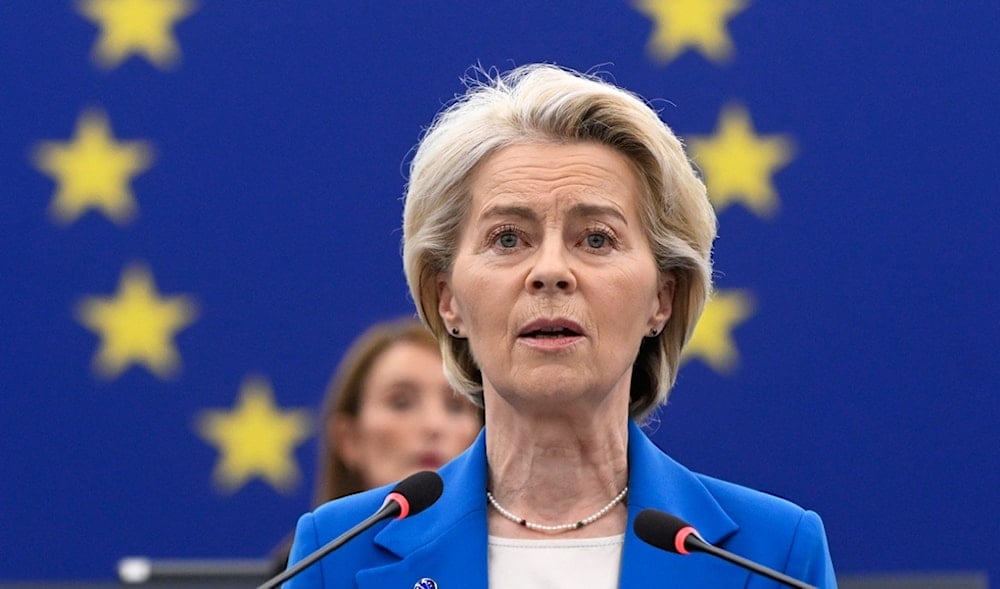Von der Leyen faces no-confidence vote for 'surrendering Europe' to US
National Rally leader Jordan Bardella accuses Ursula von der Leyen of surrendering Europe’s economic interests to Donald Trump, ahead of a no-confidence debate in the European Parliament.
-

European Commission president Ursula von der Leyen speaks before a no-confidence vote against the European Commission, Monday, Oct. 6, 2025, at the European Parliament in Strasbourg, eastern France. (AP)
European Commission President Ursula von der Leyen is facing renewed political pressure after National Rally leader Jordan Bardella accused her of effectively “signing the surrender of Europe to Trump” by finalizing a controversial trade deal with the United States in July.
Speaking during a joint debate in Strasbourg on Monday, Bardella criticized von der Leyen for what he described as a failure to defend European economic interests in the face of pressure from Washington.
“In the face of Trump's America, you haven't managed to reach an agreement with our counter-parties, you actually signed the treaty surrender of Europe,” Bardella told von der Leyen. “While other major powers are fighting hard to defend their interests, you are handing everything [to Trump] — our factories, our jobs, our industry.”
In response to the agreement, Bardella filed a motion of no confidence against von der Leyen, which will be debated in the European Parliament on Thursday. A separate motion was also submitted by Manon Aubry of the left-wing La France Insoumise party.
This marks the second time in three months that von der Leyen faces a no-confidence bid in parliament.
An unfavorable deal
The deal, signed in late July, imposes a 15% tariff on most EU exports to the US. In exchange, the European Union committed to purchasing $750 billion worth of US energy and pledged $600 billion in investments into the US economy by 2028.
The trade agreement sparked backlash across Europe from the start. French Prime Minister François Bayrou called it "a dark day," while German Chancellor Friedrich Merz warned of "considerable damage" to the German economy.
Hungarian Prime Minister Viktor Orbán said, "Trump ate von der Leyen for breakfast." The European Parliament has raised alarms over the loss of digital autonomy and strategic independence, further complicating unanimous ratification.
Bernd Lange, head of the European Parliament's trade committee, emphasized that there is "no security and predictability" under the current terms. He questioned the fairness of zero tariffs on US motorbikes while European machinery is taxed up to 50%.
Additionally, the deal has reinforced, rather than resolved, the EU's economic dependencies on the US. With key infrastructure, technology, and security links tied to Washington, Europe faces increased exposure to US policy shifts. Additionally, threats to impose tariffs over EU digital tax rules show the ongoing risks of coercion.
Read more: Europe’s summer of submission: US pressure exposes EU fragility - FT

 3 Min Read
3 Min Read










